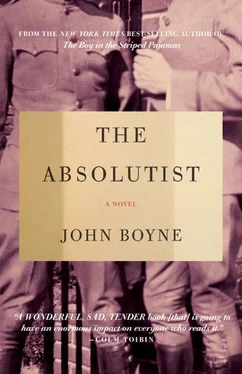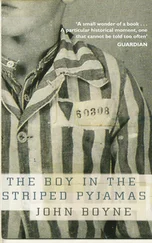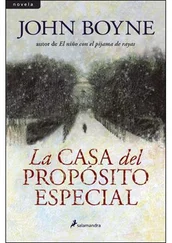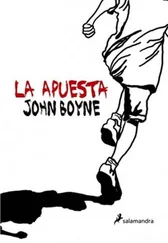I paid my few pence, thanked the woman and left the café, continuing along towards Queen Street in the direction of the cathedral spire, and looked up at the magnificent monastic building as it came into sight, and the precinct wall and gates that surrounded it. I take great pleasure in churches and cathedrals. Not so much for their religious aspect—agnosticism has been my declared denomination—but for the peace and tranquillity offered within. My twin contradictory places of idleness: the public bar and the chapel. One so social and teeming with life, the other quiet and warning of death. But there is something soothing to the spirit about resting awhile on the pews of a great church, breathing in the chilly air perfumed by centuries of incense and candle-burning, the extraordinary high ceilings that make one feel insignificant in the greater scheme of natural design, the artworks, the friezes, the carved altars, the statues whose arms reach out as if to embrace their observer, the unexpected moment when a choir above, rehearsing its matins, bursts into song and lifts the spirit from whatever despair brought one inside in the first place.
Once, outside Compiègne, our regiment had rested for an hour about a mile from a small église and, despite having been marching all morning, I decided to stretch my legs towards it, more as a means of escape from the other soldiers for a few minutes than out of a desire for spiritual awakening. It was nothing special, a fairly rudimentary building both outside and in, but I was heartsick by how abandoned it seemed, its congregation scattered to safety, the trenches or the graveyard, its atmosphere emptied of the once-attendant conviviality of the faithful. Walking outside again, thinking that I might lie on the grass until summoned back to the line, perhaps even close my eyes in the noonday sun and imagine myself in happier surroundings, I found another of my regiment, Potter, leaning on the opposite side of the church at a slight angle, one hand resting forward against the wall as he relieved himself noisily against the centuries-old stonework, and I ran towards him without a second thought, pushing him off his feet and to the ground, where he fell in surprise, exposed to all, his stream of urine coming to an unexpected halt but not before splattering over his trousers and shirt. He was on his feet a moment later, pulling himself together, cursing loudly, before knocking me off my own and seeking satisfaction for the humiliation. We had to be separated by a handful of other soldiers. I accused him of desecration and he accused me of something worse—religious mania—and although the charge was false, I did not deny it, and as our tempers started to fail us we stopped trading insults and were eventually released after facing each other, shaking hands, and calling ourselves friends once again before heading back down the hill. But the sacrilege had disturbed me nevertheless.
I made my way through the nave of the cathedral now, glancing surreptitiously at the dozen or so people who were scattered in silent prayer around the church, and wondered from what hardships they sought relief or for what sins they begged absolution. At the crossing, I turned and looked up towards the place where the choir would stand on a Sunday morning, offering worship. I walked south from there and an open door led me outside to a labyrinth where a few children were playing a game of catch in the bright morning, and continued along the wall towards the eastern end of the cathedral, where I found myself brought to a halt by a single grave. It stood out. Its stark nature surprised me, a simple stone cross resting atop a two-tiered base, and I leaned forward to discover that this was the grave of Edith Cavell, our great nurse-patriot, who had helped hundreds of British prisoners of war escape from Belgium through her underground route and had been shot in the autumn of 1915 for her trouble.
I stood up and offered not a prayer, for that was of no use to anyone, but a moment of contemplation. Nurse Cavell had been proclaimed a heroine, of course. A martyr. And she was a woman. The people of England seemed to celebrate this fact for once in their history and I felt a great sense of joy at discovering her grave in such an unexpected fashion.
Footsteps on the gravel alerted me to the approach of someone else, two people, in fact, whose steps had fallen in time with each other, like a night patrol circling a compound. I walked a little further past the grave and turned away, pretending to be engaged in a study of the stained-glass windows above.
“We should be making the final list by about three o’clock,” the young man—who had the look of a sacristan—was saying to his older companion. “Assuming we can get through the earlier business quickly.”
“It will take as long as it takes,” the other man replied insistently. “But I’ll have my say, I promise you that.”
“Of course, Reverend Bancroft,” came the reply. “It’s a difficult situation, we’re all aware of that. But everyone there understands your pain and grief.”
“Nonsense,” snapped the man. “They understand nothing and they never will. I will have my say, you may have no doubt on that score. But I need to get home quickly afterwards. My daughter has arranged something. A… well, it’s difficult to explain.”
“Is it a young man?” asked the sacristan in a flippant voice, and the look that he received in response put a stop to any further enquiries of that sort.
“It won’t matter too much if I’m late,” said the reverend, his tone betraying deep uncertainty. “Our meeting is far more important. Anyway, I haven’t quite decided on the wisdom of my daughter’s plans yet. She gets notions, you see. And not always very sensible ones.”
They turned to start walking again and at that moment, the reverend caught my eye and smiled. “Good morning, young man,” he said, and I stared at him, my heart beating faster inside my chest. “Good morning,” he repeated, stepping towards me, smiling in an avuncular fashion and then seeming to think better of it, as if he could sense the potential of a threat, and moved back again. “Are you quite all right? You look as if you’ve seen a ghost.”
I opened my mouth, unsure how to reply, and I believe that I must have shocked the two of them entirely as I spun around, turned on my heels and ran back in the direction of the gate through which I had entered, almost tripping over a raised hedge to my left, a small child to my right and a series of paving stones in front of me, before finding myself inside the cathedral once again, which seemed monstrous now but also claustrophobic, ready to take me within its grasp and hold me there forever. I looked around the confusing space, desperate for a way out, and when I found it, I ran through the nave of the church, my boots sounding heavily on the tiles and sending their drumlike rhythms echoing into every corner of the building as I made for the doors, aware that the heads of the faithful were turning in my direction now with a mixture of alarm and disapproval.
Outside I breathed quickly, desperate to fill my lungs, and felt a horrible clamminess begin to seep through my skin, covering my body, my earlier relaxed state replaced by one of terror and remorse. The serenity imparted by the cathedral had left me and I was a man alone again; here in the unfamiliar surroundings of Norwich, with a task to complete.
But how could I have been so stupid? How could I not have remembered? It was all so unexpected though; the name—Reverend Bancroft—and then the expression on his face. The likeness was uncanny. I might have been back on the training grounds of Aldershot, or the trenches of Picardy. It might have been that dreadful morning when I ascended from the holding cells in a terrible, vengeful fury.
Читать дальше












